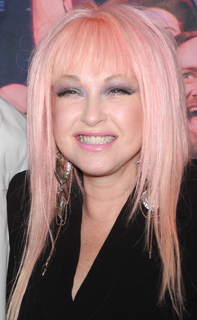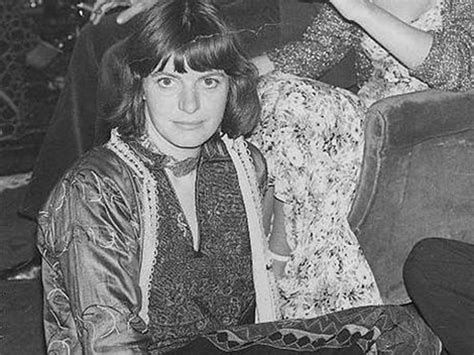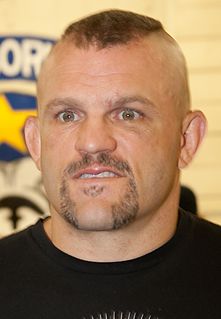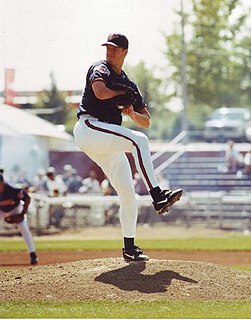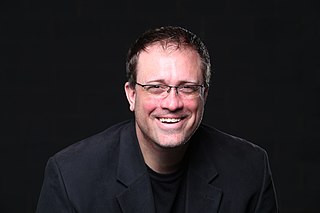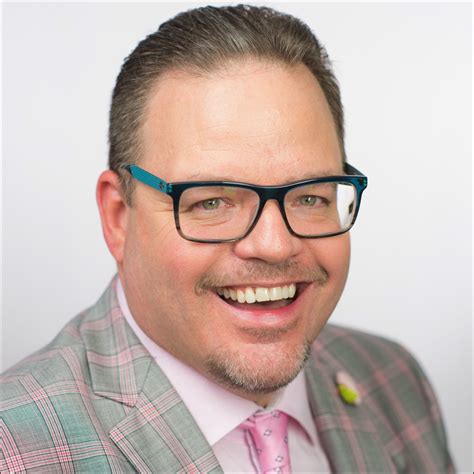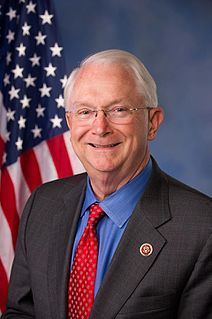Top 1200 Learned Behavior Quotes & Sayings - Page 5
Explore popular Learned Behavior quotes.
Last updated on April 20, 2025.
I'm not saying that maybe there isn't a kid out there whose behavior hasn't been influenced by me in some way. I'm sure there is. But I can only speak for myself, and if you'd asked if my behavior had ever been affected by people I'd admired from afar, like musicians or footballers, that'd be a yes, totally. Right down to their hand gestures.
I believe, when in my behavior or in relationships or in the way I react to something, that I'm still dealing with some leftover stuff from my childhood, but the good thing is now, because I have learned so much from the Bible, I can tell when I'm behaving wrong and when I'm not, and it doesn't take me very long to realize that's out of fear, or that's because I was controlled as a child, and I can make a conscious decision to behave the way I know I should behave.
Like the sorcerer of old, the television set casts its magic spell, freezing speech and action and turning the living into silent statues so long as the enchantment lasts. The primary danger of the television screen lies not so much in the behavior it produces as the behavior it prevents — the talks, the games, the family festivities and arguments.
There’s a passage that I love in Romans 1. … [I]t talks about homosexuality and it says that they will receive in their bodies the penalties of their behavior. … The Bible [is] right every time … and that’s why AIDS has been something they haven’t discovered a cure for or a vaccine for. … And that goes to what God says, ‘Hey you’re going to bear in your body the consequences of this homosexual behavior.’
Although homosexual behavior is very common in the animal world, it seems to be very uncommon that individual animals have a long-lasting predisposition to engage in such behavior to the exclusion of heterosexual activities. Thus, a homosexual orientation, if one can speak of such thing in animals, seems to be a rarity.
Sometimes people will hear you and be able to change their behavior, but often their behavior has more to do with their own need for approval than with your need for support. No matter what their response, you need to be firm and hold your ground. At the end of the day, your health is your responsibility.
I think the part of media that romanticizes criminal behavior, things that a person will say against women, profanity, being gangster, having multiple children with multiple men and women and not wanting to is prevalent. When you look at the majority of shows on television they placate that kind of behavior.
Laws against homosexual behavior should remain on the books, not to be indiscriminately enforced against anyone who happens to be caught violating them, but to be used when necessary to send a clear message that those who flagrantly violate society's regulation of sexual behavior cannot be permitted to remain as acceptable, equal citizens within that society.
There are millions of people out there ignoring disabilities and accomplishing incredible feats. I learned you can learn to do things differently, but do them just as well. I've learned that it's not the disability that defines you, it's how you deal with the challenges the disability presents you with. And I've learned that we have an obligation to the abilities we DO have, not the disability.
I've learned a few things from the tea party, both the political one and the one in Alice in Wonderland. From the first, I learned that you can make people angrily shuffle in roughly the same direction if you appeal to their beliefs in poorly defined ways. From the second, I learned that England has some sort of substance called treacle.
Policemen and laws can never replace customs, traditions and moral values as a means for regulating human behavior. At best, the police and criminal justice system are the last desperate line of defense for a civilized society. Our increased reliance on laws to regulate behavior is a measure of how uncivilized we’ve become.
It's natural canine behavior to chew on all sorts of things, roll in other animals' droppings, hump and fight other dogs, menace anything that invades the home. All these behaviors can be curbed, but that takes a lot of work. Trainers say it requires nearly 2,000 repetitions of a behavior for a dog to completely absorb it.
As a kid, I took piano lessons, and I didn't like it. It wasn't cool. I was into Duran Duran and rock music. I didn't have any interest in piano. I did it for three years, and because of piano, I learned percussion. I learned scales. I learned how to sing. Piano gives you all of the basics of those things.
We need to first clearly establish what our modern rules for behavior are and make sure those are clearly understood and communicated. That empowers both the people who experience harassment on any level, but also the people who are the perpetrators of harassment to absolutely understand what behavior is crossing the line.
Humans like to think of themselves as unusual. We've got big brains that make it possible for us to think, and we think that we have free will and that our behavior can't be described by some mechanistic set of theorems or ideas. But even in terms of much of our behavior, we really aren't very different from other animals.
A wealth of knowledge is openly accessible in nature. Our ancestors knew this and embraced the natural cures found in the bosoms of the earth. Their classroom was nature. They studied the lessons to be learned from animals, knowing that much of human behavior can be explained by watching the wild beasts around us. Animals are constantly teaching us things about ourselves and the way of the universe, but most people are too blind to watch and listen.
It no longer makes sense to speak of "feeding problems" or "sleep problems" or "negative behavior" is if they were distinct categories, but to speak of "problems of development" and to search for the meaning of feeding and sleep disturbances or behavior disorders in the developmental phase which has produced them.
It is now generally accepted that the roots of our ethics lie in patterns of behavior that evolved among our pre-human ancestors, the social mammals and that we retain within our biological nature elements of these evolved responses. We have learned considerably more about this responses, and we are beginning to to understand how they interact with our capacity to reason.
The behavior of the Occupy Wall Street protesters has raised some curious questions about the continuing double standards in our society. When it comes to fascistic leftist behavior, our mainstream media overlooks and excuses it - while conservatives are demonized and blamed for every dead sparrow that falls from the sky.
No skill, no special aptitude, no vividness of imagination or precision of thinking would go unrecognized because the child who possessed it was of one sex rather than the other. No child would be relentlessly shaped to one pattern of behavior, but instead there should be many patterns, in a world that had learned to allow to each individual the pattern which was most congenial to his gifts.
My mother moved abroad when I was 11, my dad wasn't around from the time that I was a baby, so I was not the product of a family, but a product of observation - of watching what went on around me, of watching who I liked, what I didn't like, what I thought was good behavior and what I thought was bad behavior and tailoring myself accordingly.
It is the most powerful submission in the sport. It is a beautiful thing. You're holding them into you, their back is on you, and you are basically choking them gradually like a boa constrictor and once you've got them, the pressure goes on and they have to submit or they are going to stop breathing. It happened to me early in my career, and I panicked, and gave in, I tapped out too early. I learned a lot from that. I learned from it, learned how to do the move better, learned how to avoid it being done to me.
I believe the alphabet is no longer considered an essential piece of equipment for traveling through life. In my day it was the keystone to knowledge. You learned the alphabet as you learned to count to ten, as you learned "Now I lay me" and the Lord's Prayer and your father's and mother's name and address and telephone number, all in case you were lost.
I've learned that you can tell a lot about a person by the way he/she handles these three things: a rainy day, lost luggage and tangled Christmas tree lights. I've learned that making a 'living' is not the same thing as 'making a life'. I've learned that whenever I decide something with an open heart, I usually make the right decision. I've learned that you shouldn't go through life with a catcher's mitt on both hands; you need to be able to throw some things back.
Discipline isn't a dirty word. Far from it. Discipline is the one thing that separates us from chaos and anarchy. Discipline implies timing. It's the precursor to good behavior, and it never comes from bad behavior. People who associate discipline with punishment are wrong: with discipline, punishment is unnecessary.
If you go out and have unprotected sex with lots of people, that behavior puts you at risk. Similarly, violent behavior can spread. One violent act can elicit a response. It can spread to people in a peer group so that they feel that they have to respond. It can pass generation to generation almost like a genetic disease.
We will not make inroads into the gun-violence problem until we acknowledge the underlying causes of youth behavior today, compared to yesterday. ... we must come to the realization that laws and regulations alone cannot produce a civilized society. It's morality that is society's first line of defense against uncivilized behavior.
The thing about markets, and I think the thing people don't understand about that, is markets are not kind, but they're very efficient. So when the marketplace determines an inefficiency in the system, it corrects that, and a market system that's left alone will reward good behavior and punish bad behavior.
